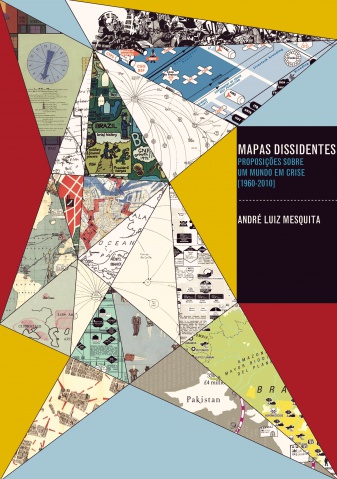Matthew Wisnioski: Engineers for Change: Competing Visions of Technology in 1960s America (2012)
Filed under book | Tags: · 1960s, 1970s, activism, computing, education, engineering, history of computing, history of technology, labour, luddism, military, science, space, technology

“In the late 1960s an eclectic group of engineers joined the antiwar and civil rights activists of the time in agitating for change. The engineers were fighting to remake their profession, challenging their fellow engineers to embrace a more humane vision of technology. In Engineers for Change, Matthew Wisnioski offers an account of this conflict within engineering, linking it to deep-seated assumptions about technology and American life.
The postwar period in America saw a near-utopian belief in technology’s beneficence. Beginning in the mid-1960s, however, society—influenced by the antitechnology writings of such thinkers as Jacques Ellul and Lewis Mumford—began to view technology in a more negative light. Engineers themselves were seen as conformist organization men propping up the military-industrial complex. A dissident minority of engineers offered critiques of their profession that appropriated concepts from technology’s critics. These dissidents were criticized in turn by conservatives who regarded them as countercultural Luddites. And yet, as Wisnioski shows, the radical minority spurred the professional elite to promote a new understanding of technology as a rapidly accelerating force that our institutions are ill-equipped to handle. The negative consequences of technology spring from its very nature—and not from engineering’s failures. “Sociotechnologists” were recruited to help society adjust to its technology. Wisnioski argues that in responding to the challenges posed by critics within their profession, engineers in the 1960s helped shape our dominant contemporary understanding of technological change as the driver of history.”
Publisher MIT Press, 2012
ISBN 0262018268, 9780262018265
296 pages
via a2
Interview with the author (Carla Nappi, New Books in Science, Technology, and Society, audio, 1h)
Review (Caroll Pursell, The American Historical Review, 2014)
Review (Kevin T. Baker, The Sixties, 2013)
Review (Stephen H. Unger, 2013)
Vasilis Kostakis, Christos Giotitsas (eds.): Beyond the State and the Market: The Peer Perspetive (2014) [Greek]
Filed under book | Tags: · activism, commons, economics, governance, networks, p2p

«Η ιστορία τελείωσε», διαλαλούν μερικοί. Άραγε υπάρχει κάτι άλλο να αντιταχθεί στο παρόν καπιταλιστικό σύστημα και την οικονομία της «ελεύθερης» αγοράς;
Καθώς τα κηρύγματα περί αέναης οικονομικής ανάπτυξης έχουν οδηγήσει σε βαθιά περιβαλλοντική κρίση, υπάρχει βιώσιμη εναλλακτική που να κατανοεί το πεπερασμένο των φυσικών πόρων; Υπάρχει άλλος τρόπος κοινωνικής οργάνωσης που να συνειδητοποιεί το κοινωνικό όφελος που προκύπτει από το διαμοιρασμό της πληροφορίας, του πολιτισμού και της γνώσης;
Αν ο καπιταλισμός γεννήθηκε μέσα στο φεουδαρχικό σύστημα για να το υπερβεί στη συνέχεια, κατά παρόμοιο τρόπο υπάρχουν ενδείξεις για σπόρους ενός νέου παραδείγματος στη σημερινή συγκυρία;
A volume on the peer-to-peer theory and the commons with texts by the scholars and activists Michel Bauwens, David Bollier, Antonis Broumas, George Dafermos, Christos Giotitsas, Silke Hefric, Vasilis Kostakis, Jakob Rigi, Graham Seaman, Johan Söderberg and Raul Victor.
Πέρα από το κράτος και την αγορά: Η ομότιμη προοπτική
Publisher Voreiodytikes Publications, May 2014
Creative Commons BY-NC-SA 3.0 GR License
144 pages
André Luiz Mesquita: Mapas dissidentes: proposições sobre um mundo em crise, 1960-2010 (2013) [BR-Portuguese]
Filed under thesis | Tags: · activism, art history, cartography, data visualisation, mapping

“Esta tese é uma investigação sobre um conjunto de mapas e diagramas produzidos por artistas e ativistas entre as décadas de 1960 e 2010, a partir de diferentes contextos de transformação social, política e econômica em momentos de crise, de conflito e de formas potenciais de resistência. Através de documentos como catálogos, manifestos, artigos, fotografias, documentários, obras de arte, reproduções de mapas e entrevistas, a pesquisa realiza uma análise sobre esse conjunto de mapeamentos desenvolvidos por três gerações de artistas.
No primeiro capítulo, este trabalho examina os jogos e mapas realizados nos anos 1960 e 1970 pelo sueco-brasileiro Öyvind Fahlström (1928-1976) durante as tensões geopolíticas da Guerra Fria (1947-1991) e as mudanças estruturais e organizacionais do capitalismo global na década de 1970. No segundo capítulo, a tese discute a obra do norte-americano Mark Lombardi (1951- 2000), artista que, durante a década de 1990, procurou mapear com suas estruturas narrativas redes internacionais de poder e transações financeiras obscuras envolvendo bancos, governos e elites dominantes da sociedade neoliberal. O terceiro capítulo trata das práticas de contracartografia conduzidas entre os anos 1990 e 2010 pelos coletivos de arte ativista Bureau dÉtudes (França), Counter-Cartographies Collective (Estados Unidos) e Iconoclasistas (Argentina).
Com base nas articulações entre arte contemporânea, ativismo político e cartografia crítica, a tese considera que os mapeamentos realizados por esses artistas-ativistas trazem experiências importantes de produção de conhecimento e contribuem para a visualização das relações de poder no mundo contemporâneo, opondo-se também aos mapas supostamente imparciais, objetivos e naturalizantes do mundo guiados por interesses corporativos, militares e governamentais.”
Ph.D. thesis
Faculdade de Filosofia, Letras e Ciências Humanas, Universidade de São Paulo
284 pages
PDF (53 MB)
Comment (0)
